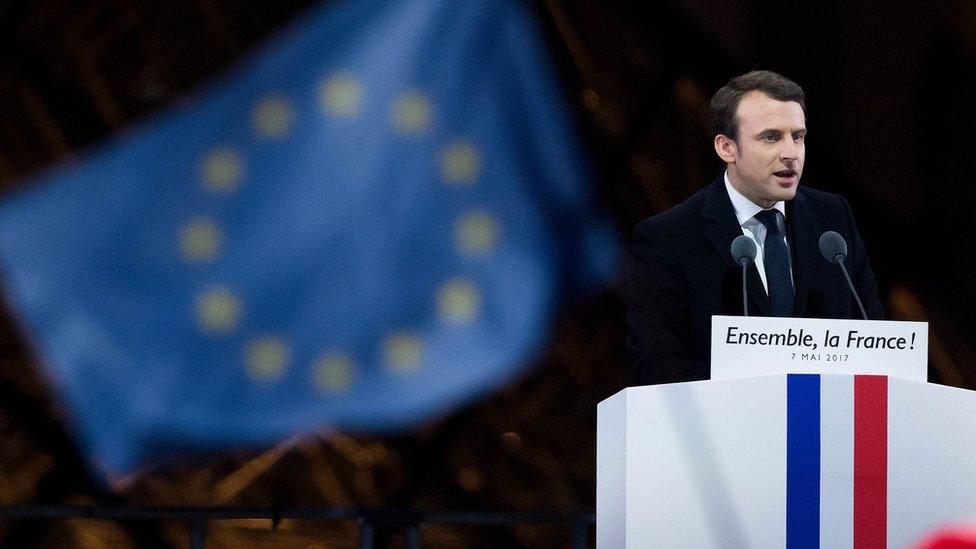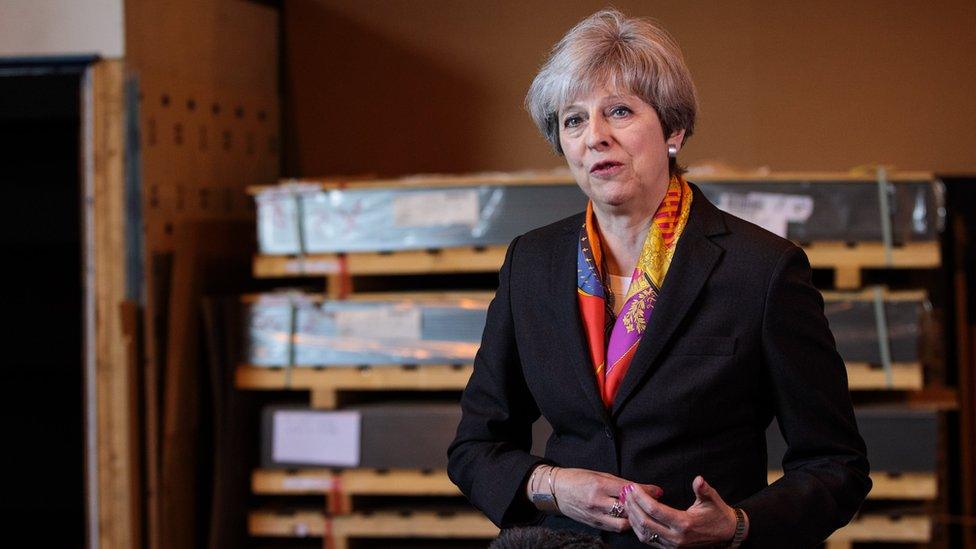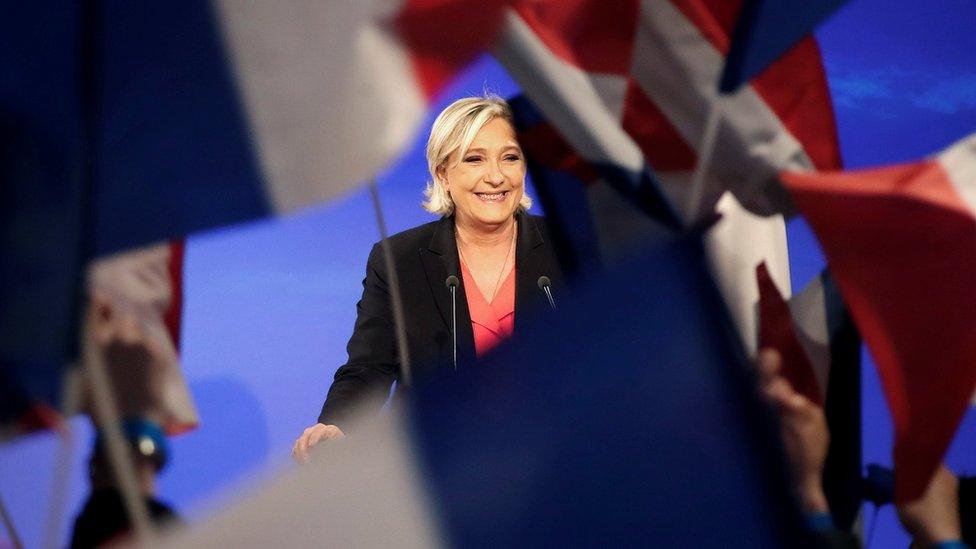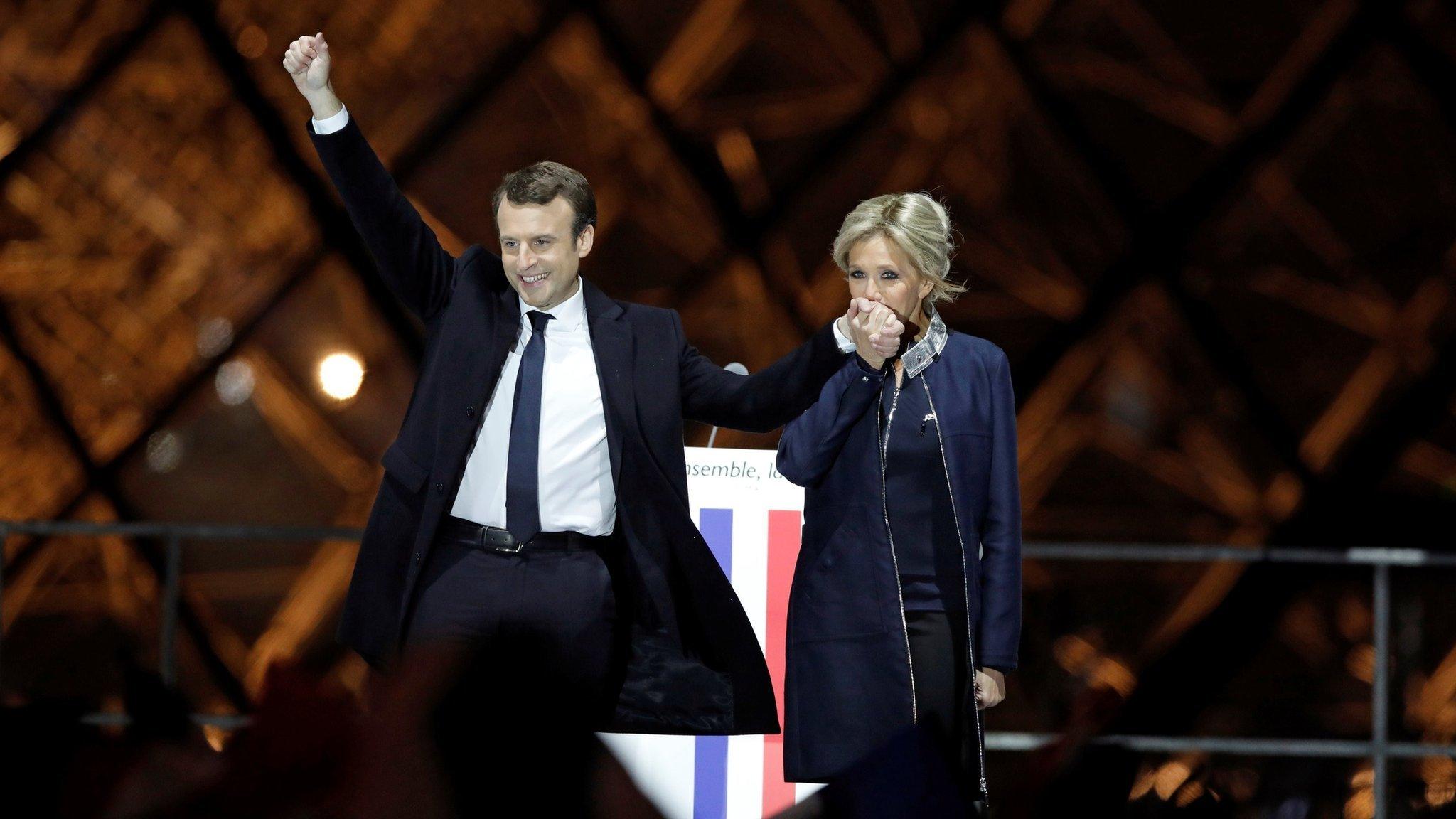Will Macron mean the blues or a boost for Brexit?
- Published
- comments

The received wisdom is that the election of Emmanuel Macron as president of France is bad for Britain's Brexit negotiations.
Like much received wisdom, it may just be wrong. For the arrival of this young financier-turned politician in the Elysee could actually make a deal between Britain and the European Union easier.
Yes, President Macron is a devoted pro-European. His belief in the idea and the institutions of the EU is part of his core.
In his election manifesto, he described Brexit as a "crime" that will plunge Britain into "servitude".
As such, he will brook no Brexit-induced dilution of the single market and all its works.
French resistance
After he met the prime minister in February, he told reporters in Downing Street: "Brexit cannot lead to a kind of optimisation of Britain's relationship with the rest of Europe. I am very determined that there will be no undue advantages."
Macron will thus, so the argument goes, stiffen sinews in Brussels and re-invigorate the Franco-German motor that has lain dormant in recent years. He has made utterly clear that he wants Britain to pay top whack when it exits the EU.
He has spoken of reforming the Le Touquet agreement that allows British immigration officers to check passports in Calais. And he has been shameless in his ambition to lure French workers and money back to France.
So Macron on paper could look like no friend of Britain in the Brexit stakes.
And yet his election is actually better news for Theresa May than she might imagine.

Theresa May will face tough Brexit negotiations with France's new president
Some Conservative ministers had been quite open in their preference for Francois Fillon, the former centre-right candidate with whom they had more natural, partisan commonalities. But they know they can live with Macron.
The new president is not going to be as Brexit obsessed as some imagine. He has other fish to fry.
He has to build support and coalitions in the National Assembly where polls suggest his new party may struggle to form a majority in next month's elections.
He has huge economic problems to deal with at home. And his efforts in Brussels will be focused on gaining support for his own proposals to reform the EU and the eurozone.
Brexit is just one issue on his to-do list. His priority is dealing with France's difficulties and stopping Marine Le Pen winning in 2022.
Now, of course, when President Macron does focus on Brexit, he will naturally be tough on Britain. But that is already the position of the French government. Whitehall has long ruled out any favours from Paris. In many ways, Macron represents continuity.
And just think of the alternative. If Marine Le Pen had won, the EU would be in chaos.

The EU's focus may have shifted from Brexit had Marine Le Pen won the French presidency
Her election would have been seen by some as an existential threat to the EU. Brexit would have become a second order issue.
EU politicians would have had less bandwidth to spend on Brexit. And as such, a deal would have been less likely, or at the very least much harder. Compare that to the stability that a Macron presidency may provide.
For here is the real point. The election of Macron may just make the EU a little more confident or perhaps a little less defensive. Many in the EU will conclude - maybe over-optimistically - that the global populist surge has now peaked with Trump and Brexit.
The electoral failure of anti-establishment politicians in Austria, the Netherlands and now France will give them hope that the troubled EU project is not quite so threatened as they had imagined.
They may feel a little less fearful that Brexit could presage the breakup of the EU. And a less vulnerable EU may feel less determined to make an example of Britain in the negotiations. And that can only be good for Brexit, however hard or soft you want it.
So the election of President Macron will of course send shivers of relief through the corridors of Brussels. But it won't make the challenge of Brexit any more enormous than it already is.
And just perhaps, it might make the task a little easier.
- Published8 May 2017

- Published7 May 2017
